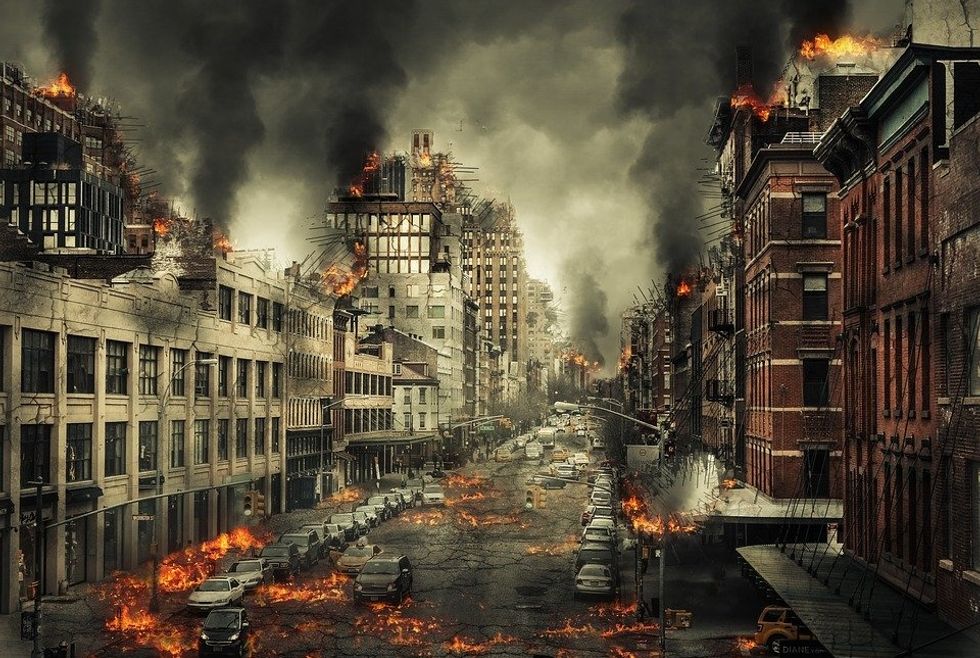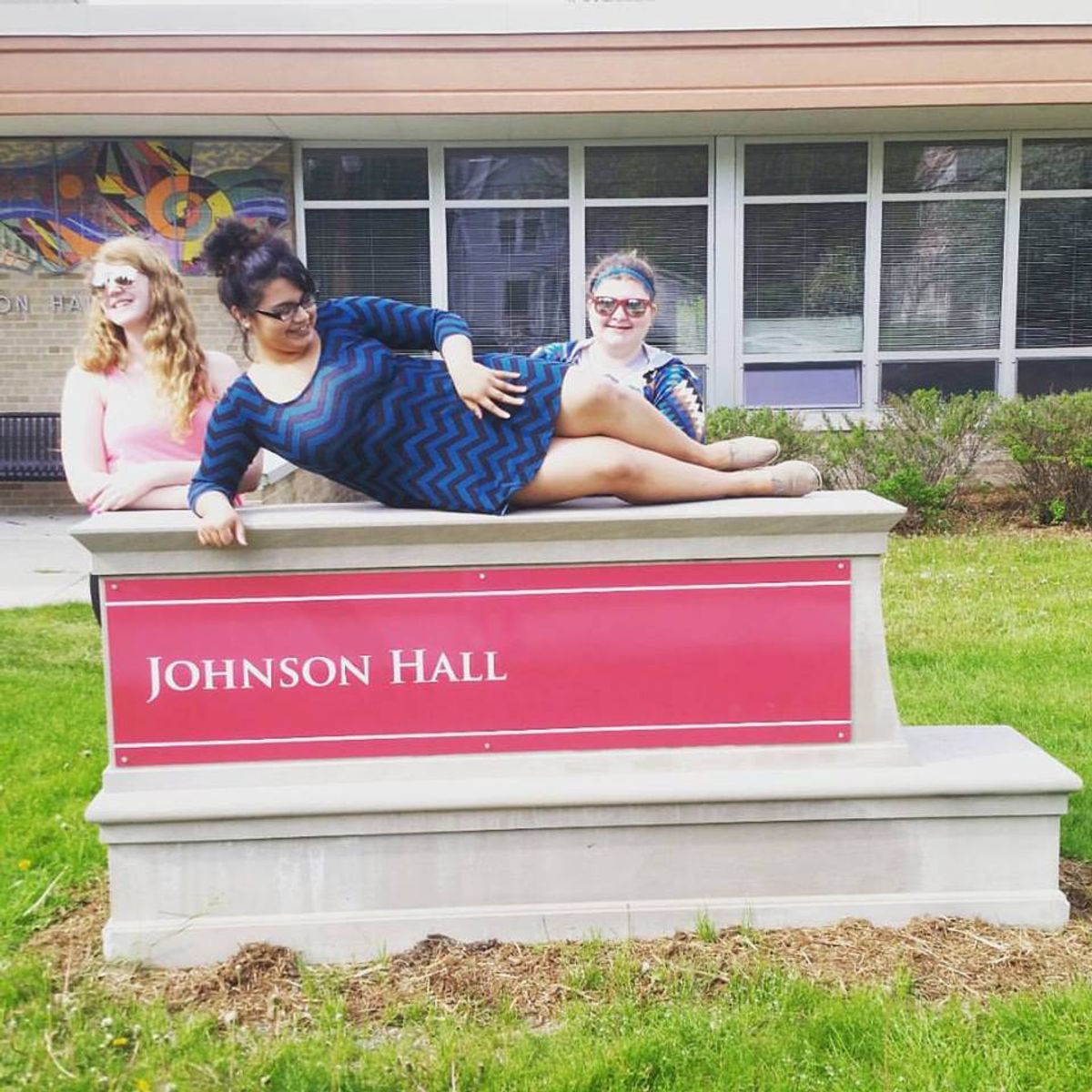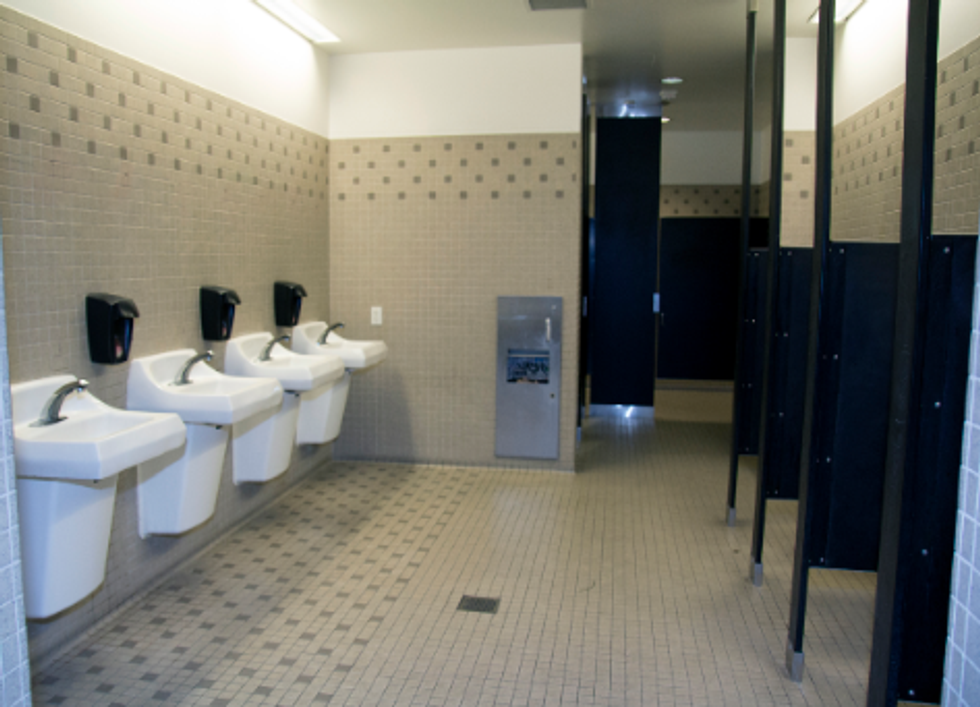I'm two weeks into Zoom University and it's getting weird. Let me preface this by saying that I am in this for the long hall, and ready, ultimately, to end up on the other side of this very strange and unusual time in life. With that said, I am allowed to take a survey of the land and hopefully make sense of where I stand, in the hopes that maybe that will normalize all of this. In the most unexpected twist of things, I have found myself taking some sliver of solace in the idea of societal collapse, something we should all be paying attention to as well.
Societal collapse can be classified as a wide array of things: an ideology, coping mechanism, etc. The facts are that climate change is real, and scientists are seeing its effects take form on Earth even earlier than many expected. Already, in the face of an unforeseen pandemic, we have seen how class and status will impact more vulnerable communities disproportionately, while wealthier folks will be able to seek refuge in their so-called "escape pods." The scary apocalyptic, doomsday movies that we all found so intriguing are really starting to take form in front of our very eyes, which is unsettling, to say the least.
For me, planning has always been a strength that I have been able to leverage, to some extent, especially in times of fight or flight. By all means, I live and die by my calendar. As someone that has often been characterized as "floating from place to place," seemingly taking flight wherever I go, never truly here nor there, my calendar is what brings me down to earth. In all my years of calendar scheduling, however, I do not think I was ever prepared for the nuances and aggressiveness of a Zoom-based, societally collapsing world.
Like some kind of terrible sci-fi, I, like many other students today, have found myself attached to the life-sucking force that is my computer. Zoom, Google Hangouts, Slack, Blackboard, Canvas, YouTube (yes, I even have a class taught live on YouTube), and any other platform one can imagine, have become my new classroom, library, study lounge, and office as I tackle classes and internships. To make matters more interesting, we are also simultaneously consciously and subconsciously taking in a steady flow of information that seemingly proves the crumbling of our world: ice caps melting, new diseases, and unforeseen weather events.
This new reality has already shown me that there are lessons I must face and ultimately learn in order to be able to take on the unexpected. One of which is that I am only one person, and every day is a good day to practice kindness and forgiveness within myself. I am allowed to acknowledge how ridiculous and maybe even scary things are today, but in the same thought process, I owe myself the understanding that I exist in a world far larger than me and my range of impact. At some point, I have to take a breath and maybe even laugh:
Imagine how amusing it is to find oneself in a breakout room for one class, forgetting about a meeting you scheduled at the same time, confiding in your classmates that you accidentally overbooked yourself, and would sadly be unable to participate fully, while jumping to the meeting trying to remain professional. Or, better yet, to wind up in a job training on Google Hangouts while also on Zoom for class; bopping from screen to screen, somehow appropriately responding to both questions posed about press releases and psychology.
The larger lesson to be learned, however, from this time of mass confusion, is to not take the path of apathy; something George Tsakraklides discusses in his article about failing climate models. He states that we all have blood on our hands when it comes to our current state of things, and, in part, I see this present in my current Zoom crisis, as well. I have to pivot and adjust, and also address a shortcoming of my own (obviously: spreading myself too thin). In terms of addressing societal collapse, now is the time to change each of our own habits. This can be through reducing our consumption, voting for more competent political leaders, or even fostering a community spirit in a society that has put individualism on a pedestal.
This kind of self-regulation in the face of adversity takes shape in Zoom as well, albeit in a different form. We can all do our part, communicating more forthrightly with professors about class expectations, doing better in our daily scheduling of classes and meetings, finding ways to stay connected to our peers (i.e. shared study documents, FaceTimes, and lighthearted breakout rooms), and ultimately not forgetting to be kind to ourselves.











 Photo by
Photo by 








